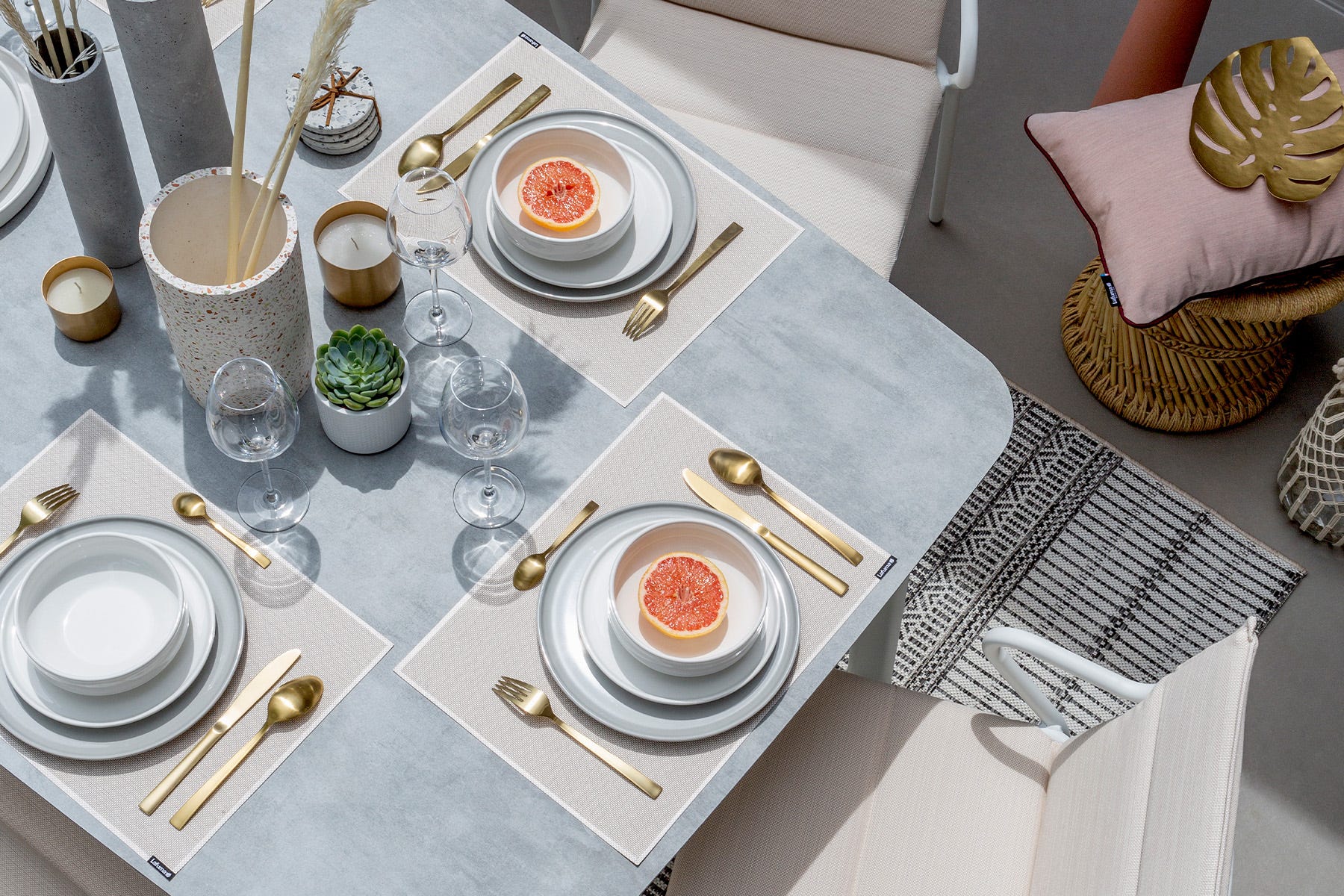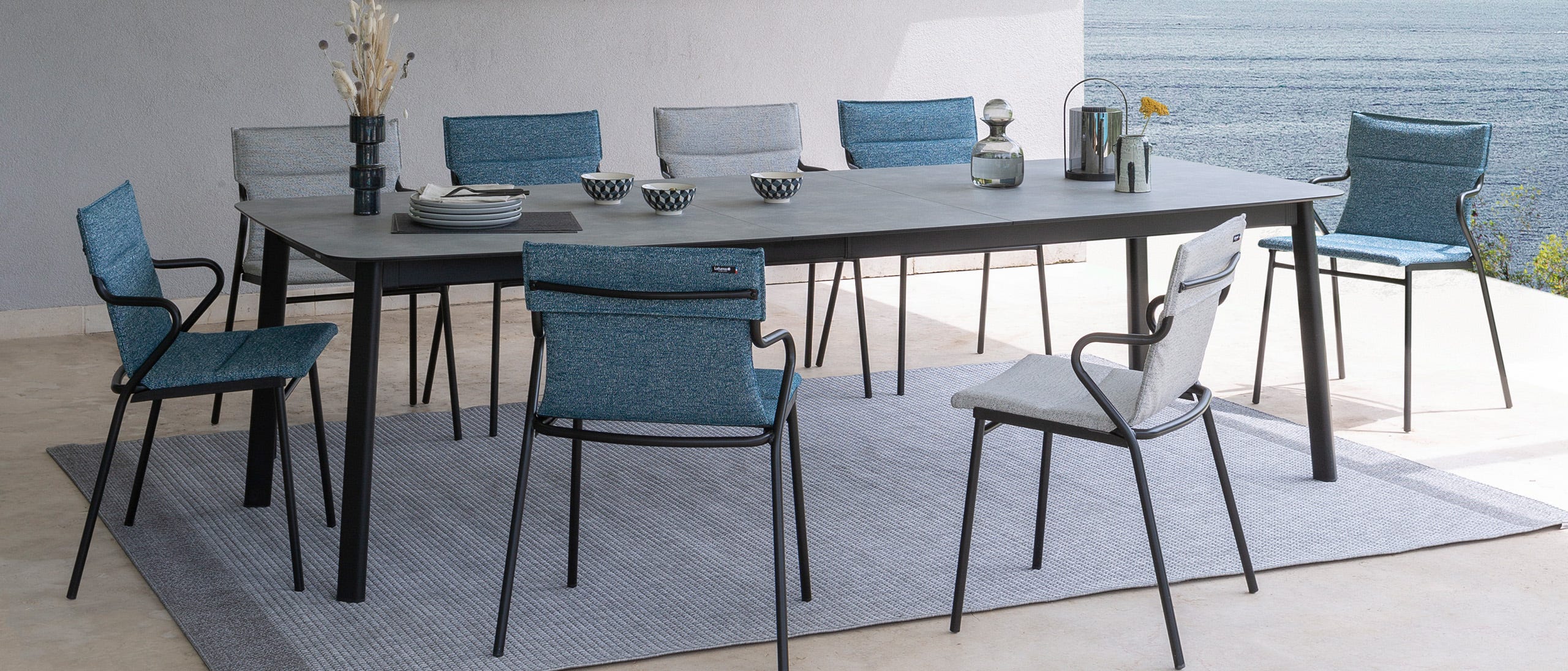🎁 70th ANNIVERSARY OFFER 🎁 -£30 from £200 | -£50 from £300 | -£70 from £400 ✨ Excluding END OF LINE ![]()
Free delivery from £150 purchase ![]()
🎁 70th ANNIVERSARY OFFER 🎁 -£30 from £200 | -£50 from £300 | -£70 from £400 ✨ Excluding END OF LINE ![]()
🎁 70th ANNIVERSARY OFFER 🎁 -£30 from £200 | -£50 from £300 | -£70 from £400 ✨ Excluding END OF LINE ![]()
Free delivery from £150 purchase ![]()
🎁 70th ANNIVERSARY OFFER 🎁 -£30 from £200 | -£50 from £300 | -£70 from £400 ✨ Excluding END OF LINE ![]()
🎁 70th ANNIVERSARY OFFER 🎁 -£30 from £200 | -£50 from £300 | -£70 from £400 ✨ Excluding END OF LINE ![]()
Free delivery from £150 purchase ![]()
🎁 70th ANNIVERSARY OFFER 🎁 -£30 from £200 | -£50 from £300 | -£70 from £400 ✨ Excluding END OF LINE ![]()

You should consider various factors when choosing the best garden table for your needs. The choice of outdoor table top is crucial. The atmosphere in your garden will vary considerably depending on whether you have a table made of wood, metal, stone or plastic, but the most important thing to bear in mind is that it is the main material of your garden table that will determine how durable it is. It is not a decision to be taken lightly!
What is the best material for a garden table? Are you still torn between wood, stone and plastic? Each one has its own style. While plastic lends itself well to wonderfully modern shapes, wood and stone have a more organic look for a natural garden vibe. Steel offers more stylish, contemporary colours for a statement dining area. But you shouldn’t choose the material based on aesthetics alone. If you want a durable garden table, you need one that is weatherproof and resistant to UV rays, impact and scratches. In the realm of outdoor furniture, not all materials are created equal. They all have their own properties. Some are more resilient than others, while others require careful maintenance.

When it comes to garden tables, you have a choice of materials. The most common ones are plastic, wood, aluminium, wrought iron and steel. However, you can also find marble garden tables on the market or ones with a ceramic top.
Marble is a natural stone for a more elegant garden feel. It is a high quality material available in a range of colours that is both robust and aesthetically pleasing. It provides a number of benefits: it is solid, weatherproof and heat resistant. Plus the perfectly smooth surface means it is easy to clean. However, marble is porous and requires careful maintenance to prevent yellowing and permanent stains. Customers are advised to apply a water-repellent treatment once a year to reduce its porosity. The last thing to bear in mind is that marble tables are extremely heavy. Make sure you put it in the right place first time so you don’t have to move it!
| Pros | Robust Weatherproof Does get hot in the sun Easy to clean |
| Cons | Difficult to transport Requires careful maintenance More expensive |
To add a modern touch to your patio, choosing a garden table with a ceramic top is a good option. Ceramic has long been used for kitchen worktops and have gained increasing popularity in the garden. It does have a lot going for it, it has to be said. It is solid, heat resistant, weatherproof, easy to clean, not to mention resistant to UV rays, stains and scratches. Ceramic tables are very easy to live with. The only downside is that the thin top means that the edges are fragile and at risk of cracking.
| Pros | Heat resistant Weatherproof Scratch-resistant Easy to maintain |
| Cons | Fragile edges |
To ensure that your table wood is sourced from sustainably managed forests (particularly exotic woods such as teak), choose a wood labelled FSC or PEFC. Avoid endangered or monocultured wood species such as eucalyptus. All wood species are ranked on a scale of 1 to 5, based on how resistant to moisture they are. Class 4 includes woods that can be in permanent contact with water as they are rot-proof (most exotic woods, as well as pine). Class 5 contains species which can be in permanent contact with salt water (e.g. itauba). Whichever wood you choose for your garden table, it will need a degree of maintenance to keep its original appearance.
| Pros | Natural and warm Robust Durable (lasts approx. 15 years) Resistant to moisture |
| Cons | Requires careful maintenance (protective oil once or twice a year) Exotic wood has a tendency to turn grey |
Manufacturers use brushed aluminium or even brushed anodised aluminium, a finish which involves inserting a protective layer to ensure outdoor furniture lasts longer. As aluminium garden furniture is particularly lightweight, it is best to pair it with a heavier outdoor table top, such as one made of glass, especially if you live in a windy area.
| Pros | Lightweight Rustproof Resistant to moisture No maintenance |
| Cons | Not recommended for windy areas as it is too lightweight Gets hot in the sun |
Steel is popular choice due to its large range of colours. However, it needs to be treated to improve its resistance to corrosion and oxidation. Galvanised steel is covered in a thin protective layer of zinc and a coat of anti-corrosive paint. Epoxy steel has also been treated. It has been coated in a powder paint mixture and baked at high temperature to protect it against rust. Stainless steel on the other hand, is naturally anti-corrosive. To note: metal garden furniture gets hot in the sun. Invest in a parasol if your patio is not naturally shaded and use cushions on your garden chairs.
| Pros | Robust Wide range of colours Impact resistant Weatherproof No maintenance |
| Cons | Scratches Gets hot in the sun |
Antique style tables and chairs in wrought iron are always popular. Wrought iron furniture is prone to rusting and needs to be stored away in the winter or protected with a cover.
| Pros | Very robust |
| Cons | Very heavy (difficult to move) Requires careful maintenance Gets hot in the sun |
Different types of plastic can be used for garden tables. While PCV is an inexpensive option, polypropylene, woven resin (similar to rattan) or polyethylene are the high end plastics to consider. If you’re after something more durable, it is best to choose one that has been UV-treated and coloured to keep the colours vibrant over time.
| Pros | Lightweight Wide range of colours and shapes Weatherproof Easy to maintain |
| Cons | Some plastics are not frost-resistant (polypropylene) Some cheaper models become discoloured in the sun |

LAFUMA MOBILIER has always been committed to a sustainable approach and uses materials that stand the test of time. For our outdoor table tops, we use a high end, innovative material: HPL or high pressure laminate table tops. Being made of 70% recycled kraft paper and 30% thermosetting plastic resin, its qualities are unrivalled.
That’s why LAFUMA MOBILIER have chosen an HPL top and galvanised steel legs (which is anti-corrosive) for the ANYTIME folding tables. The BALCONY II tables are made from scratch- and impact-resistant galvanised steel. The larger ORON tables have an aluminium or HPL top, depending on your preference, and a lightweight aluminium frame. If you want to go even more high end, our ANCÔNE garden tables also contain an HPL table top, but come with aluminium legs, which are lightweight and rustproof. If you’re after a contemporary look, HPL is unparalleled!
| Pros | Durable Does not get hot in the sun |
| Cons | More expensive |